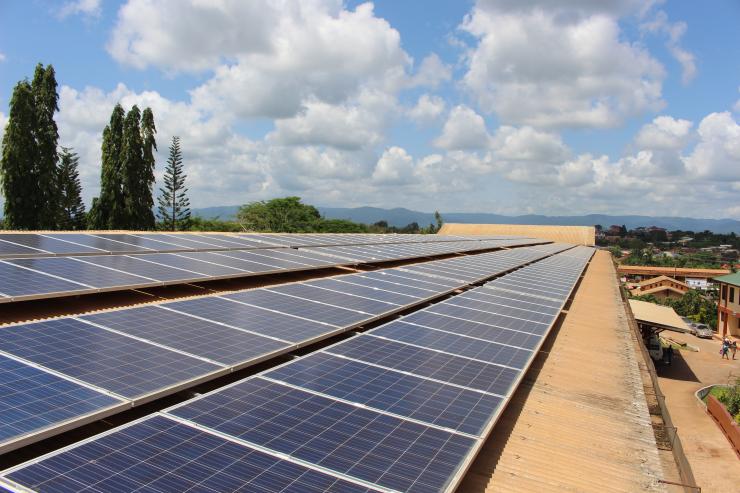

EnerSHelF: Latest News and Updates
The first interview highlights the work of Rone Yousif from University of Applied Sciences Bonn-Rhein-Sieg (H-BRS). He is supervising the measurement concepts at the three pilot sites in Ghana, which is essential to provide the different work packages with a solid foundation for their simulations and evaluations.
In an interview with Catherina Cader from Reiner Lemoine Institut, a geographical perspective is in the spotlight. She talks about the application of spatial data for the EnerSHelF project. These data help to understand local differences such as the distribution of health facilities or electricity grid availability in Ghana. With the help of maps, the attributes are visualized and beneficial for a first impression and for the communication with stakeholders.
In the interview with Matthias Bebber from H-BRS, he talks about his involvement in the development of a control for PV-Diesel-Hybrid Systems for EnerSHelF. He is also the leading author of a recently published working paper by a group of researchers at EnerSHelF. It got published in the IZNE Working Paper Series and models a grid-integrated PV-Diesel-Hybrid system. The model integrates different influences on the system and helps to correctly size and plan the installation.
Our most recent interview is with Silvan Rummeny from Cologne University of Applied Sciences. He explains the development of the advisor and planning tool MiGUEL. MiGUEL is an acronym for Micro Grid User Energy Planning TooL. It is meant to provide users with suitable solutions on how to design microgrid systems in the most cost-effective way. It is developed in the open-source programming language Python and will be made available on github.
The latest article is by Mohammed Abass from WestfalenWIND. He travelled to Ghana in March and finished the set-up of the PV-hybrid system at Kologo health-centre. During their previous stay, the team was unable to finish the installation. The existing meter of the hospital uses a single-phase inverter and WestfalenWIND was not able to connect it to the 3-phase inverter of the PV-hybrid setup. The connection has now been achieved and the system is up and running.
Additionally, a blogpost by Jonas Bauhof on EnerSHelF has been published on the Bonn Sustainability Portal. In his article, he introduces the research project and its different facets while looking at the field of application.
